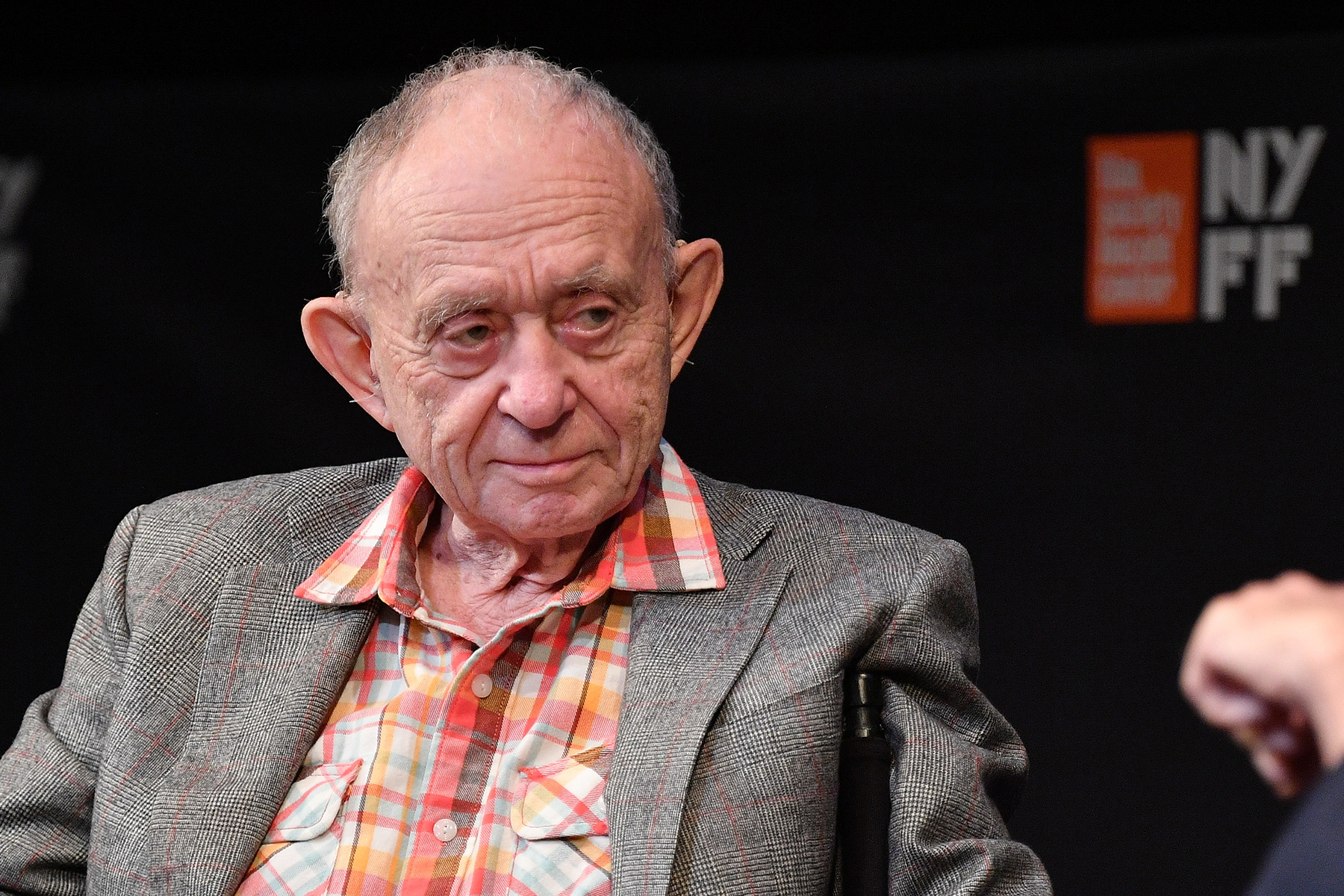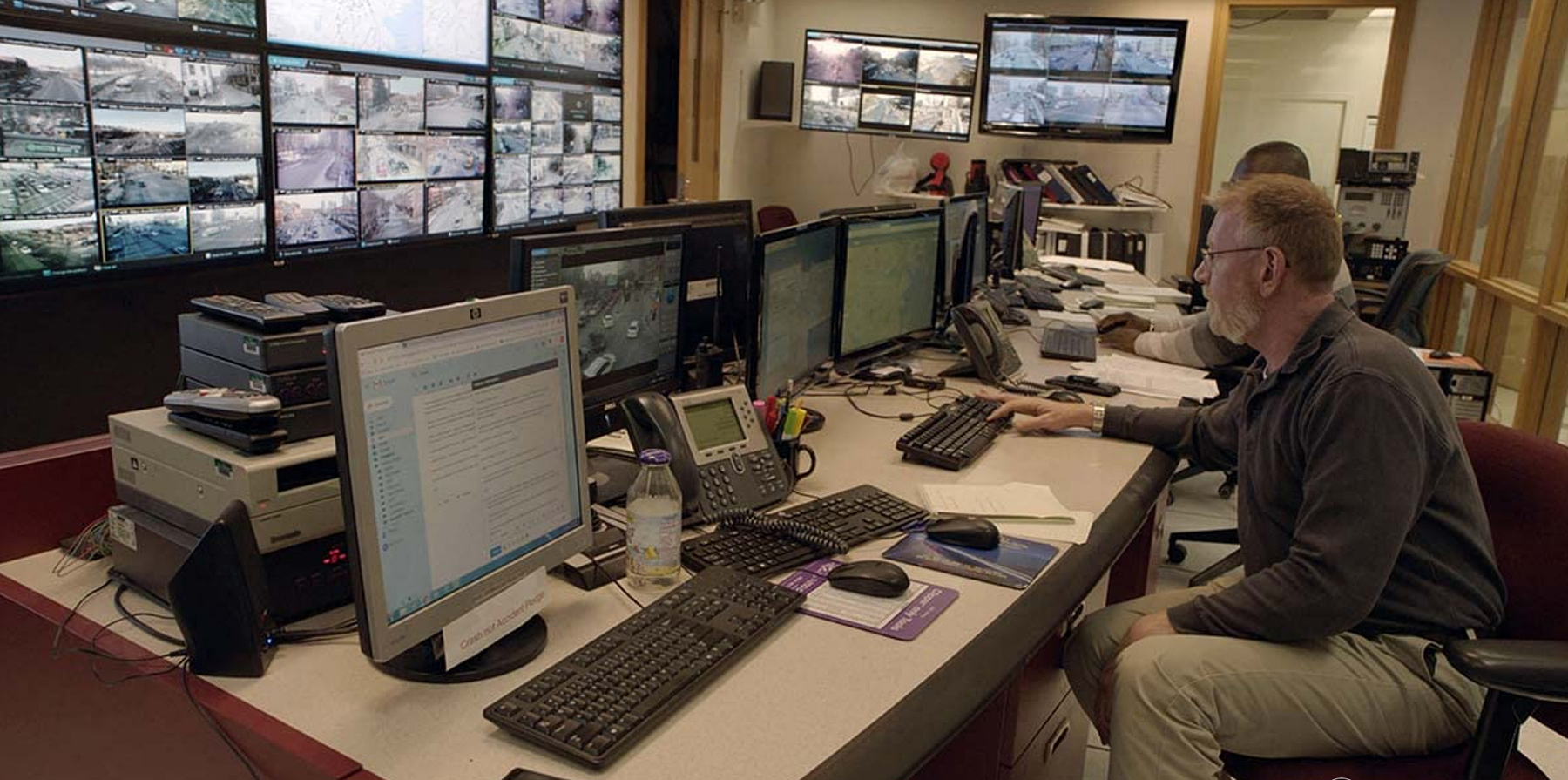
NEW YORK, NEW YORK – SEPTEMBER 30: Director Frederick Wiseman speaks onstage at the ‘Monrovia, Indiana’ screening Q&A during the 56th New York Film Festival at The Film Society of Lincoln Center, Walter Reade Theatre on September 30, 2018 in New York City. (Photo by Dia Dipasupil/Getty Images)
- Film
“City Hall”: Frederick Wiseman’s Portrait of Democratic Government at Work
November 5, 2020
—
Emanuel Levy
mso-fareast-font-family:"Times New Roman"’>It’s safe to say that at 90, boasting a career that spans nearly six decades, Frederick Wiseman is America’s premier documentarian, a pioneering figure of a filmmaking school known as cinema verité and observational cinema. Modest to a fault, Wiseman has dismissed both labels, claiming, ‘cinéma verité is just a pompous French term that has absolutely no meaning as far as I’m concerned.’
mso-fareast-font-family:"Times New Roman"’>However, no matter the label, there’s critical consensus that Wiseman is a seminal filmmaker, who has devoted his entire career to the study of major social institutions, such as hospitals, prisons, high schools, police departments.
mso-fareast-font-family:"Times New Roman"’>The first feature Wiseman produced was The Cool World in 1963, but it was Titicut Follies in 1967, which he produced and directed, that announced the arrival of a major talent in observing and understanding social reality.
mso-fareast-font-family:"Times New Roman"’>Over the past decade, Wiseman has been the subject of major tributes and retrospectives. In 2014, he was awarded the Golden Lion for Lifetime Achievement at the Venice Film Festival, and two years later, he received an Honorary Oscar from the Academy of Motion Picture Arts and Sciences (AMPAS).

mso-fareast-font-family:"Times New Roman"’>Despite advanced age, the indefatigable Wiseman has not slowed down, and this month sees the release of his new and absorbing documentary, City Hall, which aims to understand democracy at a local level, in action, and also in inaction. Shot in 2018 and 2019, it runs for four hours and thirty-two minutes. It can be seen virtually via New York’s Film Forum.
mso-fareast-font-family:"Times New Roman"’>Like many of his previous features, City Hall demonstrates his unique skills for making dramatically poignant cinema out of the minutiae of everyday life. In this case, the focus is on the Mayor of Boston (where Wiseman was born in 1930 to a Jewish family), as he navigates the operations of city hall as a workplace, defined by endless meetings and bureaucratic procedures.
mso-fareast-font-family:"Times New Roman"’>The title of Wiseman’s 45th feature is as deceptively simple as those of previous works, High School, Hospital, Ex Libris: The New York Public Library, as nothing of what is shown or heard is simple or redundant, despite the routine repetition of the committees or meetings that are described.
mso-fareast-font-family:"Times New Roman"’>City Hallmso-fareast-font-family:"Times New Roman"’>Known for his sharp and direct observations, Wiseman, who edits all of his movies, avoids the more common strategies of the non-fiction genre, such as talking heads, running commentary, or voice-over narration, by the director or participants.
mso-fareast-font-family:"Times New Roman"’>His perspective emerges slowly and methodically through the movie’s puzzle of a structure, showing recurring themes and meaningful patterns of interaction with the power elite and rank-and-file residents of Boston, a complex, ethnically diverse, sharply stratified society in terms of social class.
mso-fareast-font-family:"Times New Roman"’>Far from being claustrophobic, City Hall also gets outside those conference rooms and their long desks, showing images of Boston’s lively streets and diverse architecture. We get snippets of a lesbian couple’s wedding, a Chinese New Year celebration, a Thanksgiving dinner for people with disabilities. In one scene, Walsh is seen proudly marching at Fenway Park, celebrating the Red Sox’s 2018 World Series victory.
mso-fareast-font-family:"Times New Roman"’>The recurring image is the imposing concrete fortress of City Hall itself. He informs senior citizens about the resources available to them through the city’s Elderly Commission. Addressing his Latino constituents, he criticizes the Trump administration’s attacks on people of color and ethnic minorities.
mso-fareast-font-family:"Times New Roman"’>Walsh also takes time to reflect on the discrimination endured by his own Irish Catholic ancestors. While attending a fundraiser for nurses, he reminisces about the kindness of the care he had received as a childhood cancer patient.
mso-fareast-font-family:"Times New Roman"’>Walsh goes out of his way to be sensitive and understanding of his fellow Bostonians. He truly believes that municipal government can make a difference in introducing and affecting significant change in the residents’ lives.
mso-fareast-font-family:"Times New Roman"’>But Walsh is not naïve – he also understands that genuine empathy and honorable intention have their limits, and can lead to failure, especially in a system that tends to deal with particular social problems in terms of generic and conventional solutions. Indeed, Walsh comes across as the public face of a municipal government, which succeeds as much as it fails, if one only applies the yardsticks of concrete positive results.
mso-fareast-font-family:"Times New Roman"’>One of the most revealing sequences occurs at a public meeting about a cannabis store that’s about to open in Dorchester. The Asian American store-owners single out how their place will benefit the economic welfare of the entire community. But then the Black residents raise their real concerns about traffic jams, safety measures, increased crime. Wiseman allocates equal time to both sides of the conflict, showing how communication can be difficult when such racial and economic differences prevail.
mso-fareast-font-family:"Times New Roman"’>As an institution, city hall doesn’t always rise to the occasion and doesn’t always meet the mayor’s high standards, and Wiseman is careful enough to delineate it as a democratic structure that’s inherently shaky and unstable, as well as tough and resilient. While well-accustomed to the old ways and reluctant to change, its officials also realize the inevitability of change in the name of progress.
mso-fareast-font-family:"Times New Roman"’>There’s a wonderful anecdote of two men who are trying very hard to get their parking tickets excused. And lo and behold, they manage to succeed by using all kinds of earnest reasons and silly excuses, even resorting to a display of charm and fake humility. The incident, familiar to all urban viewers, sounds too good to be true, but it also shows how bureaucracy, usually portrayed as coldly efficient and impersonal, sometimes can be twisted and manipulated to reveal its less known face of human empathy.


